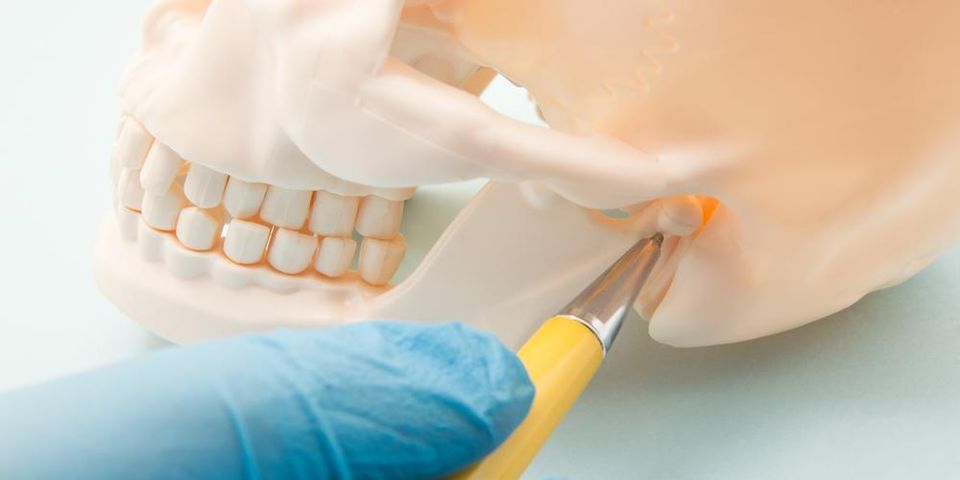
The temporomandibular joint, or TMJ for short, is one of the most special joints in the human body because of its double-sided, multi-functional nature. In addition to each side of the jaw working in tandem, the TMJ can also open, close, and rotate in a circular motion to help people chew. Here are four frequently asked questions about TMJ disorders, and how your dentist can help.
TMJ Questions & Answers
What Causes TMJ Problems?
Although the TMJ is strong enough to endure almost constant motion, it can be damaged because of auto-immune diseases like rheumatoid arthritis, facial trauma, or repetitive use injuries from grinding or clenching your teeth. However, every person is different, which is why some people develop TMJ problems after a lifetime of teeth grinding, while others can have the same problem for years without developing TMJ issues.
There are three basic types of problems that can occur with the TMJ. The most common problems occur due to a displacement of the cartilage disc that cushions the bones of the joint. You can also have problems with the muscles that help move the joint. Problems with the bones of the TMJ are less common, but can still be very painful.
What Are the Symptoms of TMJ Problems?
 One of the first symptoms of TMJ issues is pain or tenderness in the jaw. Sometimes, this pain can radiate upwards towards the ear or neck, causing non-localized pain. Another common symptom of TMJ problems is clicking or popping of the joint when it is used or being unable to open or close the jaw properly. People with TMJ problems can also develop pain while chewing or talking, which can make it hard to eat and communicate.
One of the first symptoms of TMJ issues is pain or tenderness in the jaw. Sometimes, this pain can radiate upwards towards the ear or neck, causing non-localized pain. Another common symptom of TMJ problems is clicking or popping of the joint when it is used or being unable to open or close the jaw properly. People with TMJ problems can also develop pain while chewing or talking, which can make it hard to eat and communicate.
Can I Put off Treatment?
TMJ problems need to be addressed as soon as possible, which is why dentists recommend talking with your dental care provider at the first sign of issues. The more time it takes to start addressing the problem, the more likely patients are to live with a lifetime of chronic pain. On the other hand, early, proactive treatment can help people alleviate symptoms and resume normal functionality.
How Can My Dentist Help?
Before your dentist chooses a treatment, they will first carefully evaluate your condition to determine the best course of action. The dentist may require radiographs or an MRI to pinpoint which type of problem your TMJ has. Splints and night guards work well for most patients, while others may require injections or medication to loosen the muscles. Your dentist may also recommend at-home therapies like using ice packs and anti-inflammatory medications to soothe your symptoms.
Often, habits may need to change to avoid undue stress on the joints, such as frequently chewing gum. Remember that since the TMJ is a very complicated joint, properly diagnosing and treating it requires a trained professional.
If you suspect that you have TMJ problems, don’t hesitate to seek help. At Keen Dental Care, Dr. Johnathan Mallott D.D.S. works with patients to address their individual symptoms so he can develop a personalized treatment plan. Whether you are new to TMJ problems or you have struggled with your jaw for a while, visit their website today to learn more or call (573) 875-5336 to book an appointment.
About the Business
Have a question? Ask the experts!
Send your question

